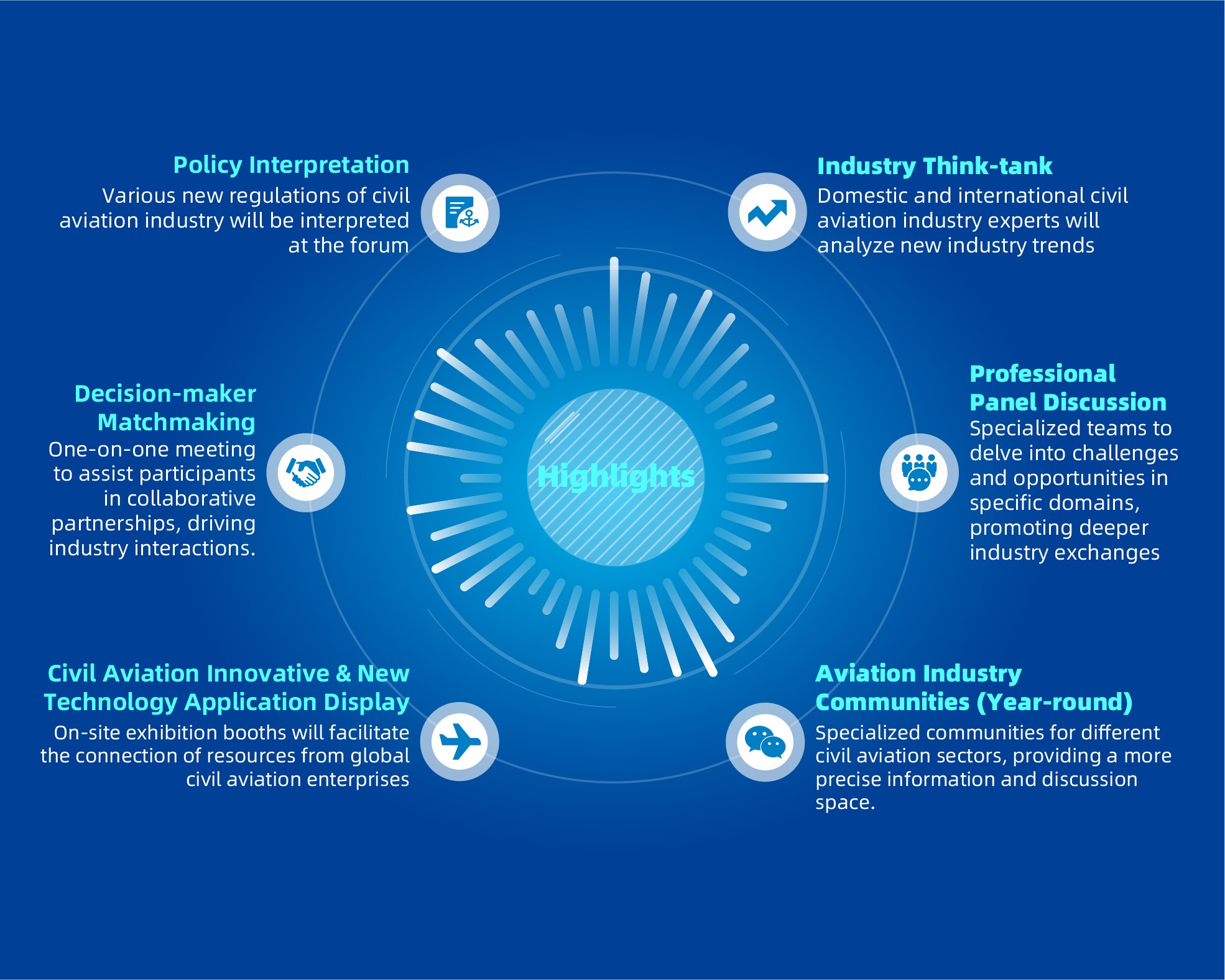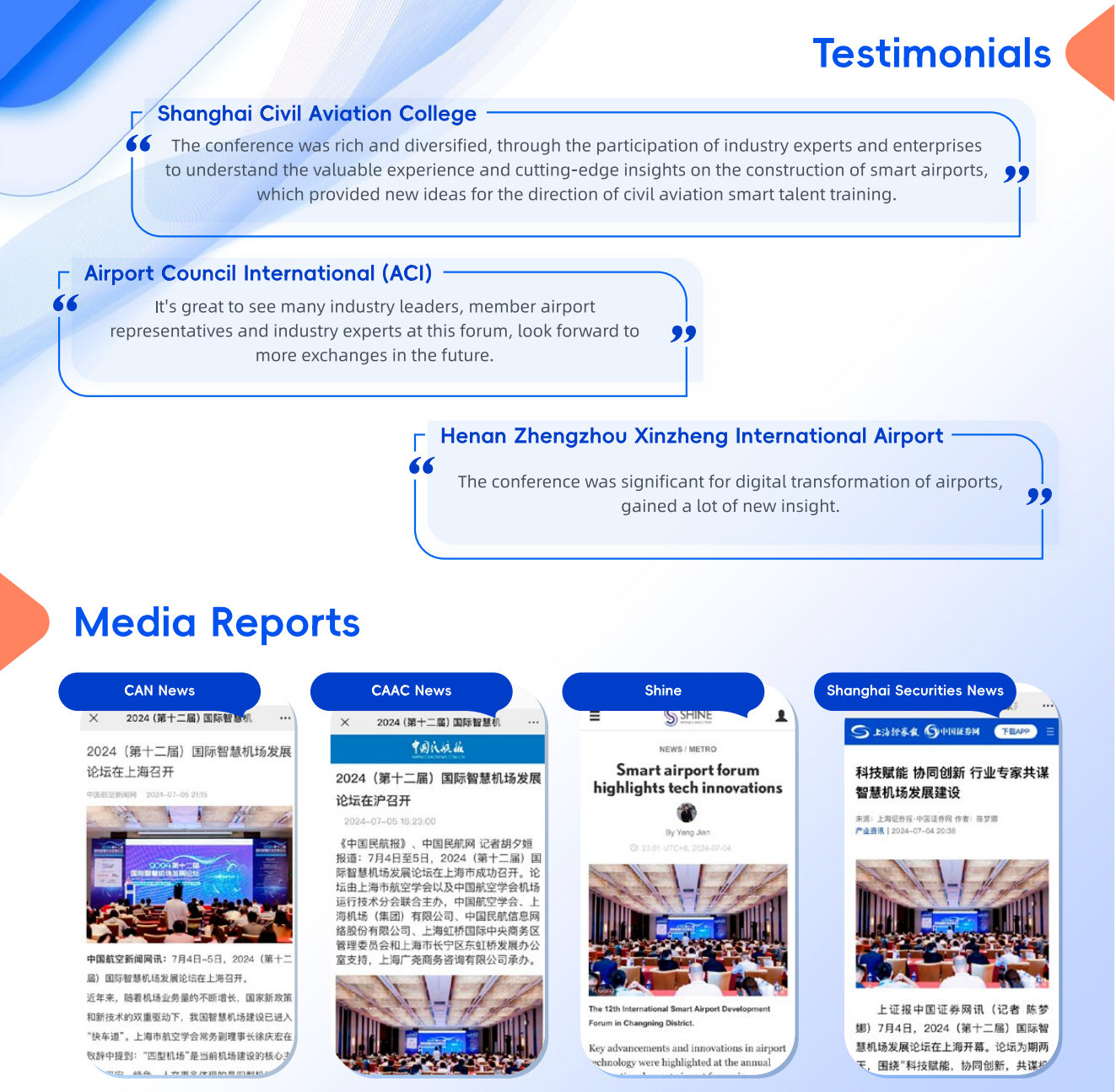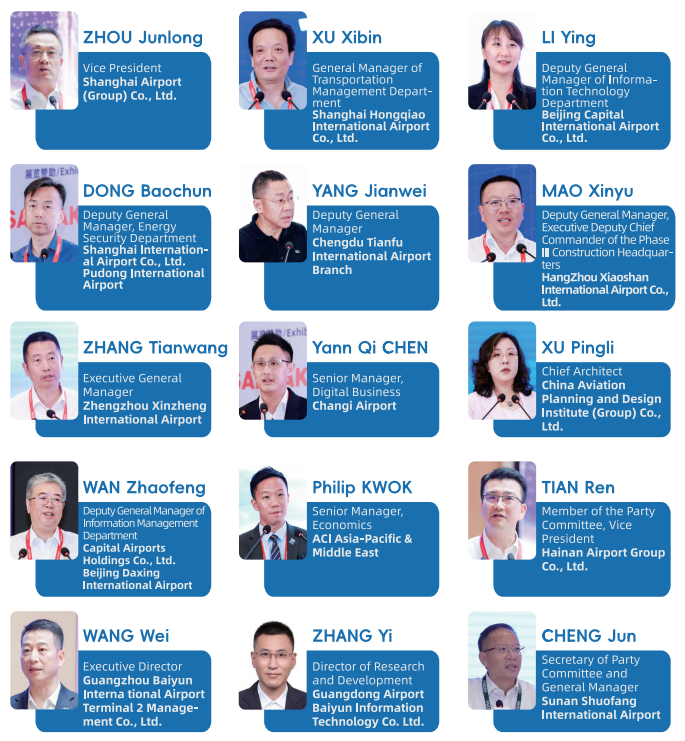China plans to add about 68 new civil airports, expand 44 civil airports and relocate one civil airport during the 14th Five-Year Plan period, with an investment of 1509.8 billion RMB. Driven by policy and technology, China's new airport construction is transforming into a full-field, full-factor, full-life-cycle project. In the future, as the practice scenarios of smart airports continue to expand from passenger service and production scheduling to intelligent operation and maintenance, ‘Smart+’ will not only open up a new space for the development of airports, but also bring real convenience and high efficiency to passengers' travelling. The International Intelligent Airport Development Forum invites airports, airlines, research institutes, new technology suppliers, and advanced equipment manufacturers to join the event to discuss and look forward to the future development of China's intelligent airports.
Base on this background, the 13th Smart Airport Development International Forum will be held on October 16th-17th in Shanghai, China. The topics of the forum are related to the future development of airport intelligence, how intelligent technology can improve the operational efficiency of airports, the difference between passenger and cargo airports in the application of intelligent technology, and how domestic airports can do the ground support work more efficiently after the domestic civil aircrafts are put into operation, and the scale of the participants is expected to be up to more than 200 people.











